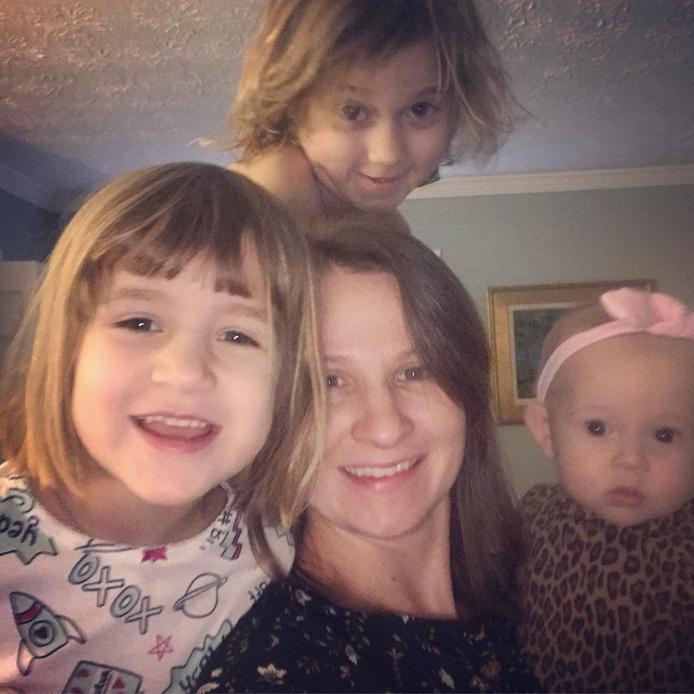Think Babies Storybook
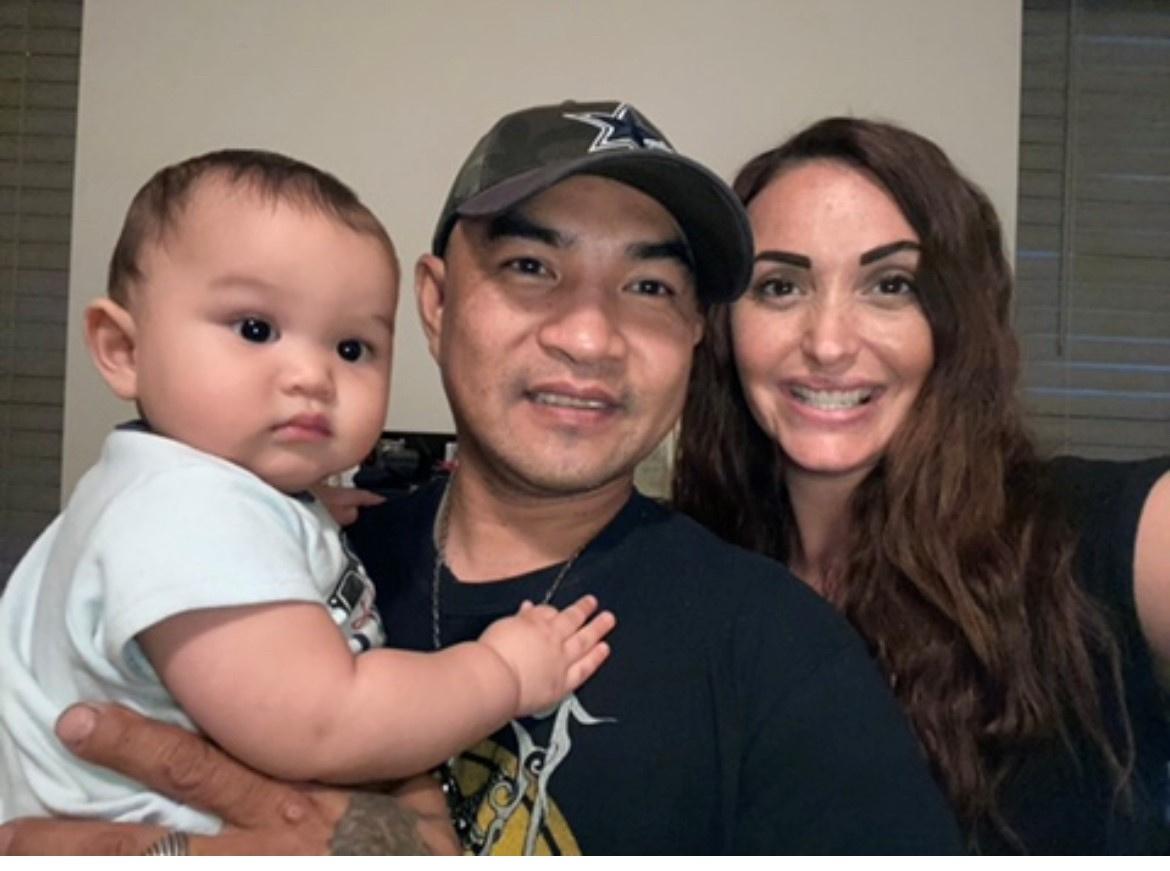


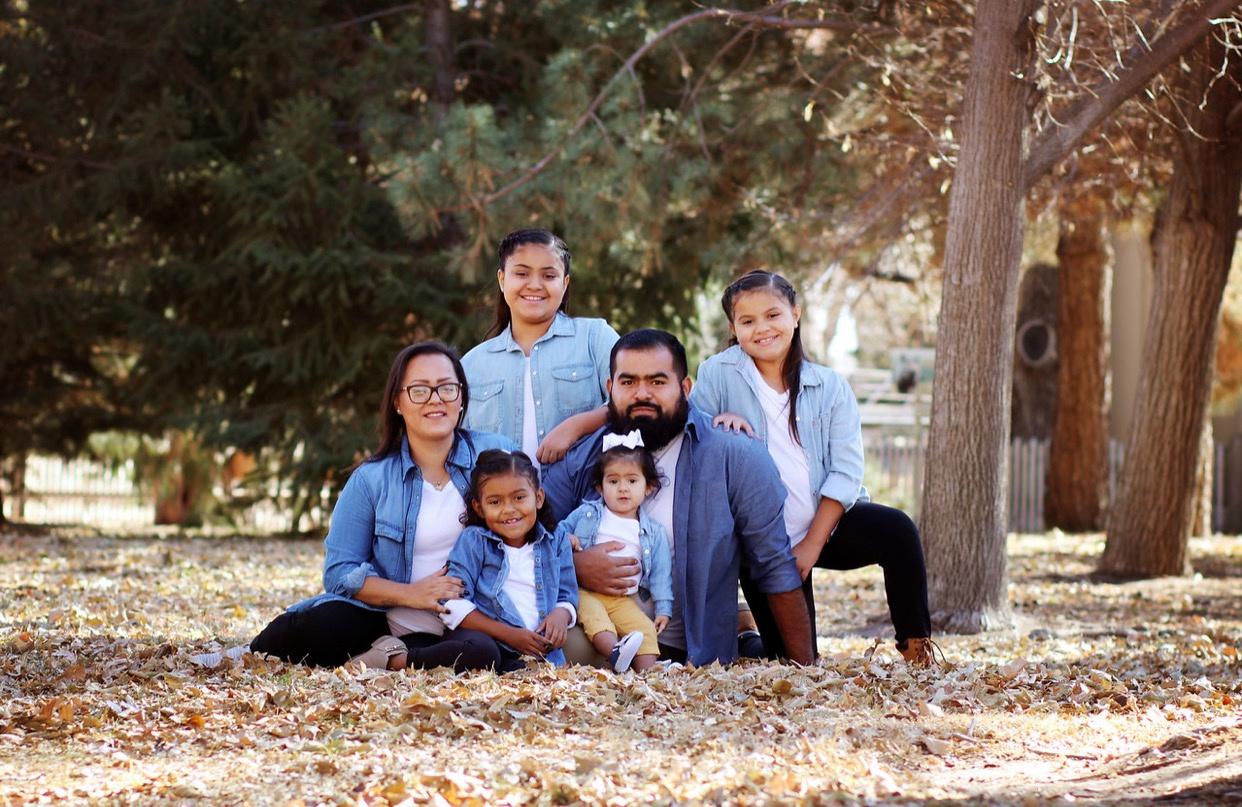
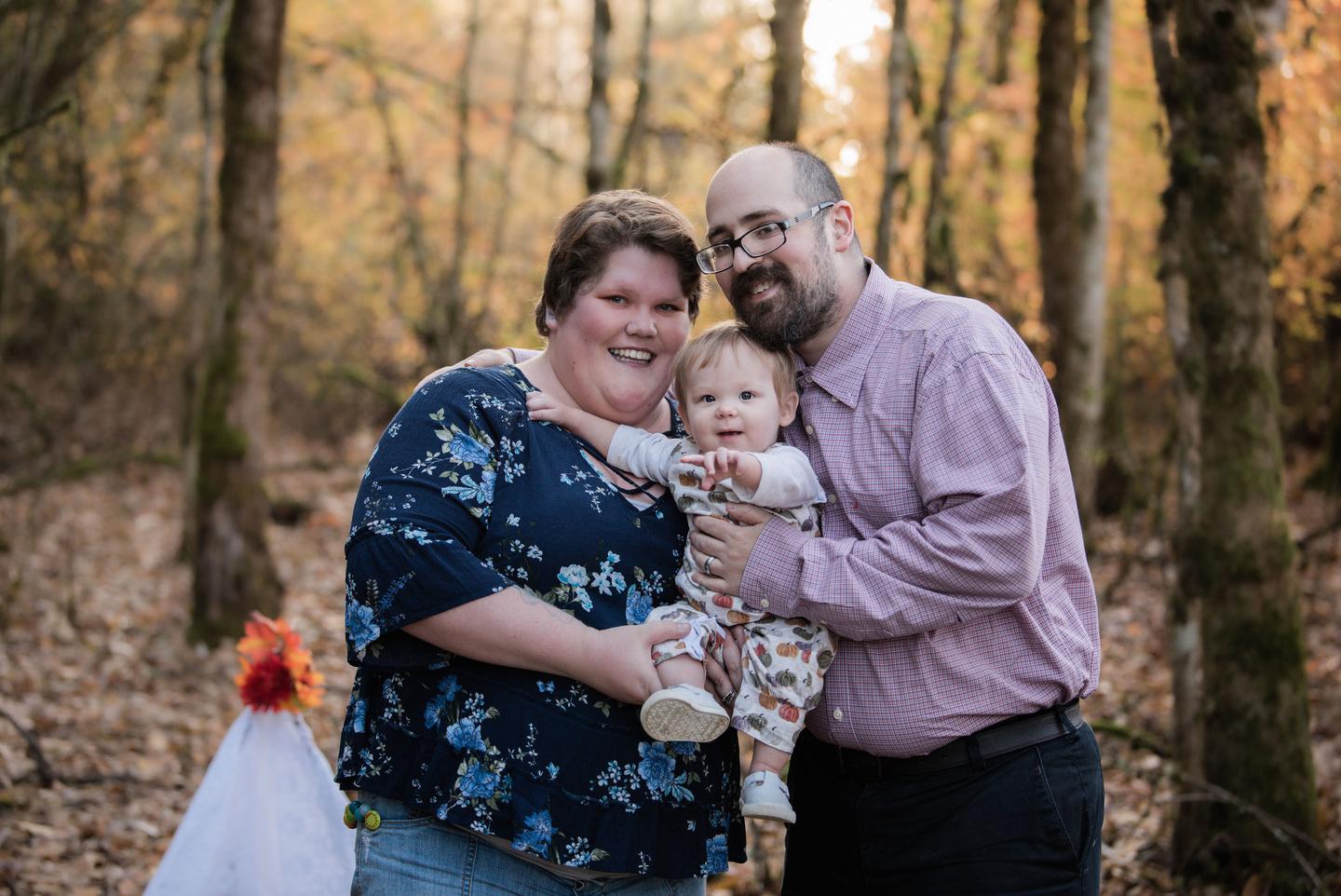
















In this story book you will find stories from Strolling Thunder family advocates from across the country and insight into how paid leave, the expanded Child Tax Credit, and quality, affordable child care support babies’ development from the prenatal period through toddlerhood.

Imagine a future when, across all 50 states Babies have what they need right out of the gate. Their brains are on turbo, developing fast Their bodies are healthy, strong neural connections amassed. And their families have the support that they need To strengthen the foundation babies need to succeed.
Brain development depends on the care of adults Who meet babies’ needs with such good results!
Consistency and warmth brighten up their lives
But when families don’t have what they need, no one thrives. So now, we can see, we’re long overdue
For a strong family policy that makes those things true.
And that is why we are talking to YOU!
You have the power to make change in our policy And invest in the things that offer babies quality. By strengthening our economy and the health of our communities. You can improve babies’ lives, what an opportunity!
From the perinatal stage through when it’s time for school
We must pass proven policies, give adults the right tools. Recognize care is critical, as are folks who provide it, The people who tend to early learning and guide it.
Because time is precious, and babies want you to know: Adults, get to it; we’re trying to grow!
Don’t wait for the future, we’re already here
Developing fast, our potential is clear.
Want to spend funds that matter? Here's where you spend it: Paid leave, child care, and the Child Tax Credit!
These are the policy building blocks we need To lay the foundation for us to succeed.
They are counting on you to Think Babies and Act. Read their stories — be inspired to make an impact.

We’ll be better than ever before, investing in babies makes a big difference.
Pass this bill to support good health, strong families, and positive early learning experience.
Across the nation, there are twinkles in eyes
As families consider growing in size. But then they reflect on the cost of child care, Plus a lack of paid leave? There’s no money to spare!
Shayla Z. Colchester, VermontShayla and her husband love the child care provider they rely on for their two children, and are grateful for the quality of care she provides. But while they have talked about having another child, they just cannot afford putting another child in her care. In Shayla’s words:
“We've often talked about having another child, but the economic realities of having three children in child care is not within reach for us; we already pay significantly more than our mortgage each month. While we love our child care provider and consider her part of our family, we struggle every time there is a tuition increase she deserves.”

Did you know?
The American birth rate fell for the sixth consecutive year in 2020, with the lowest number of babies born since 1979.
As a result of the pandemic, Pasqueal’s husband was laid off from work. Their monthly bills totaled more than the one income Pasqueal earned working from home. They filed for unemployment, but could not get his claims processed. They applied for the Supplemental Nutrition Assistance Program and got denied. In Pasqueal’s words:

“My family and so many others deserve a chance. An extended expanded Child Tax Credit would ensure support with daycare, food, mortgage, etc., not to mention our mental health. With so much uncertainty, knowing our government recognizes that families are doing our best, but that economic security is hard to come by, makes it a whole lot better.”
Kayla, a social worker, and her husband Logan, a police officer, do not qualify for child care assistance. In order to get the high-quality care that their toddler needed, the family squeezed to make the payments. But, just before the pandemic, Kayla received an email from her toddler’s provider saying that they needed to raise their rates 28-30%. In Kayla’s words:
“We were just starting to talk about having another baby. However, after we received that letter from our toddler’s child care center, we have no idea how we could afford child care for two children.”


By what mom eats, how she sleeps, any family stresses
Read what moms say they need. Have any guesses?
Allison G. North Chesterfield, Virginia“I want my Members of Congress to know that my son is just as important as theirs. I paid out of my pocket to have a black doula so I could have the best chance of staying alive while giving birth. My husband had 6 weeks of paid leave when I had our son. We cannot imagine our lives without that. I had a rough birth experience and could barely walk after getting home. He tended to me while I struggled to nurse, cried constantly as I learned my new baby. He bonded with our son in a way we both don’t feel would have been possible without him home those first few weeks. Having the financial ability to have that time made what was already a stressful life change so much easier.”

When the Weisses were having their third baby, Cate was placed on bed rest. Because she has an hourly position, she doesn’t have benefits, including paid leave. In Cate’s words:

“In late summer 2019, I was placed on bed rest for the remainder of my pregnancy. But with two other kids, bed rest was almost impossible. I was grateful when my Navy husband’s command allowed him augmented working hours so that he could assume the majority of household work as we waited for their baby’s birth. But I work as an inpatient pulmonary/critical care nurse practitioner at one of the region’s largest hospitals. Because of challenges in finding the child care that our middle child needed, I have an hourly position without benefits, including paid leave. Every day I was in bed, hoping to make sure my daughter had the best chance at a healthy life, was another day I was not getting paid.”

Research tells us that pregnancy can be a turbulent time. Without paid or sick leave in her part time position as she coped with a difficult pregnancy, LaTeeya was unable to pay the rent, and was eventually evicted from their home. In LaTeeya’s words:
“When I became pregnant with Bry’Ann, I felt confident, as I shared rent and expenses with the baby’s father. But during the pregnancy, the baby’s father left the family without child support. I moved to a new community to be closer to family, and took part time work, but through Bry’Ann’s birth and early life, I didn’t have sick or paid leave to cover my difficult pregnancy or Bry’Ann’s birth. Eventually, our family was evicted from our apartment and became homeless. When families don’t have things like paid family leave, things can spiral into many losses for families! It’s really hard for a lot of families to keep up with the bills.”
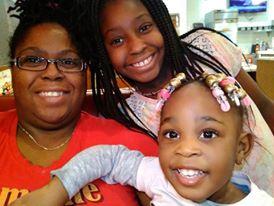

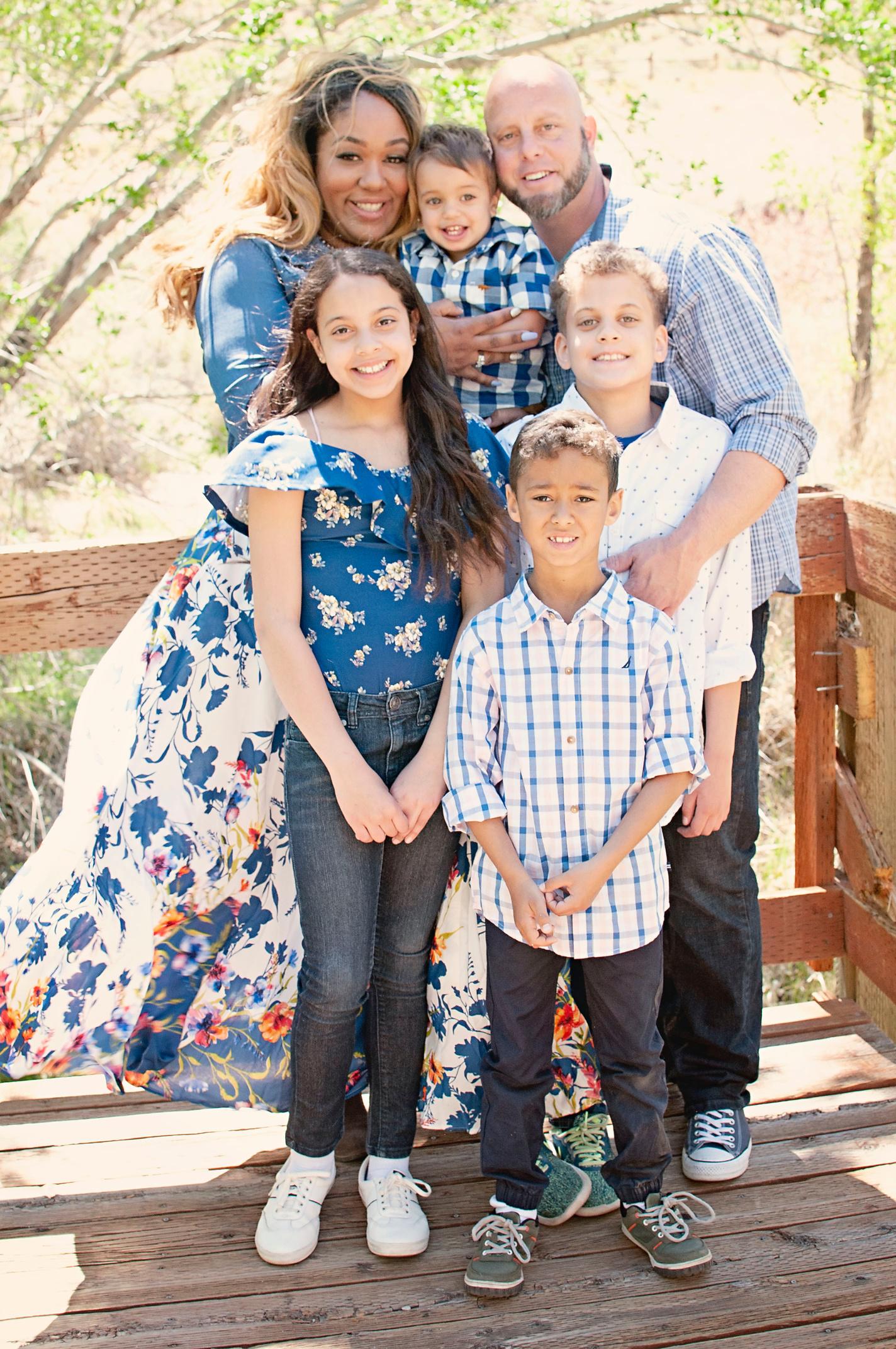
After a birth, a mom needs to recover. She needs family support, people who love her. She just birthed a baby! Yet leave without pay Means family must go back to work, no delay.
Zurii D. Las Vegas, NevadaZurii was working as a teacher when she got pregnant with her baby, Lorenzo.Postpartum depression and anxiety profoundly affected Zurii.Needing the income, she was compelled to go back to her work with children even as she continued to wrestle with her mental health. In Zurii’s words:
“It's crucial that families are given enough time to adjust to the changes that occur with a new baby. Many of us can't do that for financial reasons and are often required to return to work within 6 weeks or less. Women's bodies are still healing, our hormones are adjusting, and we are often breastfeeding our newborns. Paid family and medical leave would've allowed me to take control of my postpartum mood disorder. At 12 weeks, I was still suffering from anxiety and depression. Having to return to work in order to support my family was emotionally and mentally tough. As an educator, I felt that I did a disservice to my students by returning to the classroom and not having enough time to address my symptoms.”
During a difficult pregnancy, Kati had to go on early bedrest and used up all her unpaid leave. When her daughter was finally born, she had to go back to her job as a bilingual home visitor just one week after giving birth. Kati’s background in public health means she knows how important bonding with her child during those crucial early months can be, which made it even more challenging for her to forego that time because she had to return to work so soon after giving birth. In Kati’s words:
“I have always been a proponent of prevention thanks to my background in Public Health but when it came to my own family, I didn't understand the impact MY emotional well-being had on my children. Failing to address my own needs when I was at my worst has had an effect on my child's ability to enjoy life and even on my wallet.”
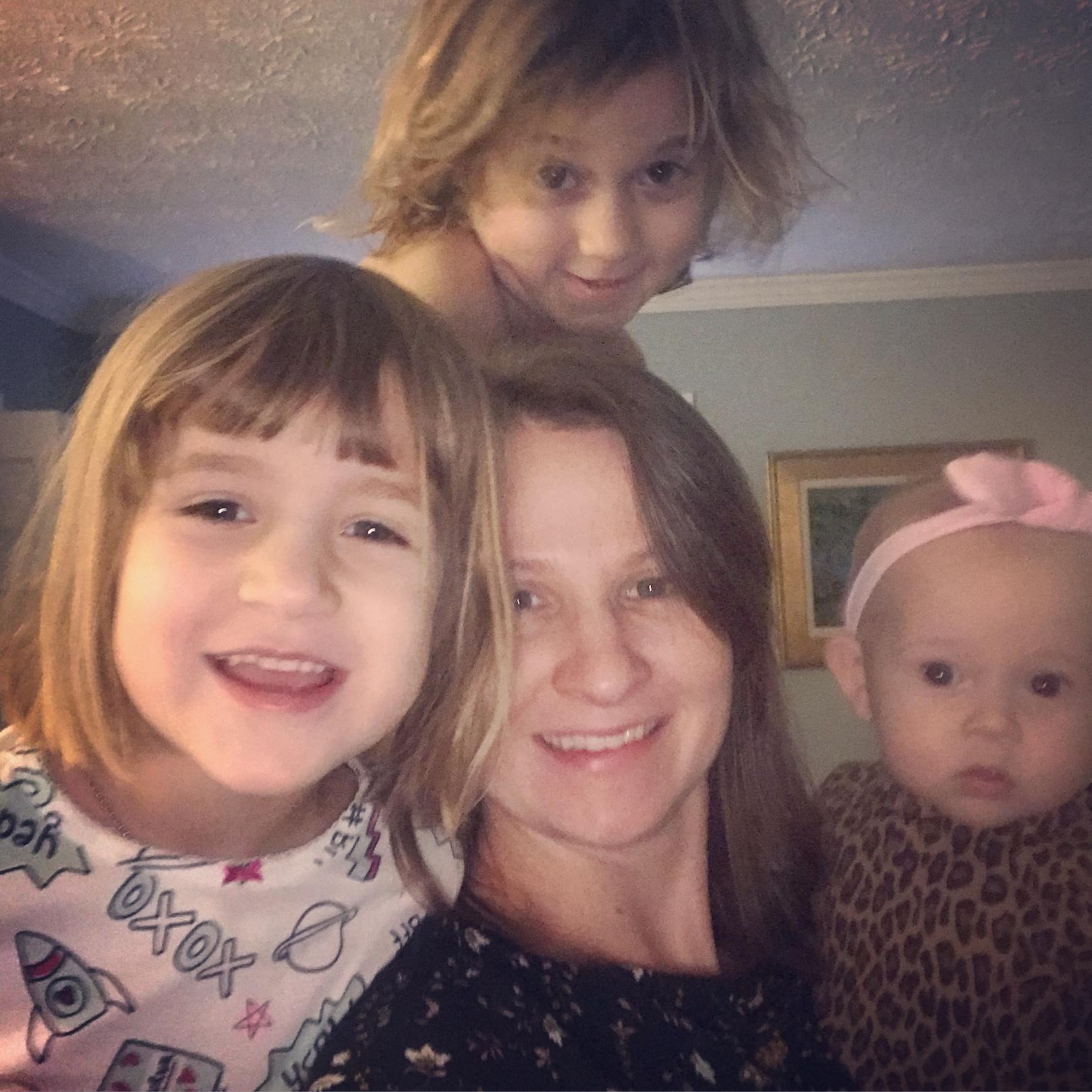
Abi Sanny and her husband, James, are both working parents. In his work as a videographer, James was never offered any paid parental leave, and could only take the time he had saved up. With an older daughter, that meant that when they had twins, he could only take a week of leave. In Abi’s words:

“By no means was one week enough time for my husband to be home with us when the twins were born. With two babies, we were both getting up throughout the night, and he was just as exhausted as I was, yet expected to function as normal. My husband is a very active and involved father, and this lack of parental leave definitely affected his mental health and overall well-being.”

Did you know?
Paid leave has health benefits for new mothers. Each week of paid leave up to 12 weeks reduces the odds of a new mother experiencing symptoms of postpartum depression
Pili planned to take some time off to be with his family after his baby was born, but unexpected complications with the birth taught Pili the importance of a national paid leave program. In Pili’s words:

“As I watched my wife give birth via C-section, I had to step in and be hands on immediately with my daughter. After the birth, Reanne struggled with continued high blood pressure, pain and numbness from major surgery, with latching and breastfeeding, and the ups and downs of her anxiety and emotions. Our family was incredibly lucky to have time off of work together. For children to have the best start in life, they need to be with their parents, free of stress from work or financial burdens from taking time off of work. It's time to support parents with their children so that they don't have additional stress and expectations placed on their shoulders.”

Across the U.S., new babies are bonding, Learning to eat, sleep, calm -- and their folks are responding. Families are learning about each dear kiddo. Each one is different, in ways big and little. Paid leave makes this kind of learning an option

Whether babies come in through birth or adoption.
Claire S. River Falls, Wisconsin“We thought we’d be prepared to be new parents but, like almost all new parents, we had no idea what we were getting into. Our daughter cried all the time, for months we never slept longer than three hours at a time, I struggled with breastfeeding, and our daughter struggled to gain weight. Our time together was crucial. Parenting a child is at once the most difficult and amazing thing I’ve ever done. Tearful moments of frustration are followed by overwhelming and intense joy. I am so glad that our family had the time we did to grow our love for one another. Every family should be entitled to the same, and they shouldn’t have to use their designated sick time to do so.”
Did you know?

Our brains grow faster between the ages of 0 and 3 than any later point in life, forming more than 1 million new neural connections every second
When Wendy and her husband adopted Bryce, they prioritized having time to properly bond and attach with their new baby. She was able to take 12 weeks off work due to a combination of personal time off and FMLA, a large part unpaid. While she doesn’t regret the time she took off, having no income for several weeks was a financial strain. Paid leave would have allowed her to take that valuable bonding time without the stress of not having her reliable income to help meet household expenses. In Wendy’s words:
“Bonding is the foundation of our relationship with Bryce. From the time we met him in the hospital when he was a day old, we immediately began skin-to-skin contact with him. We were able to take time off from work to be with him for the first three months of life, and that was extremely important to us. Bonding as he is older means reading together, playing on the floor with one another, and simply being together as a family.”

It was important to Ryan to take time off to be with his family when his second baby was born, and so he saved his sick time. In Ryan’s words:

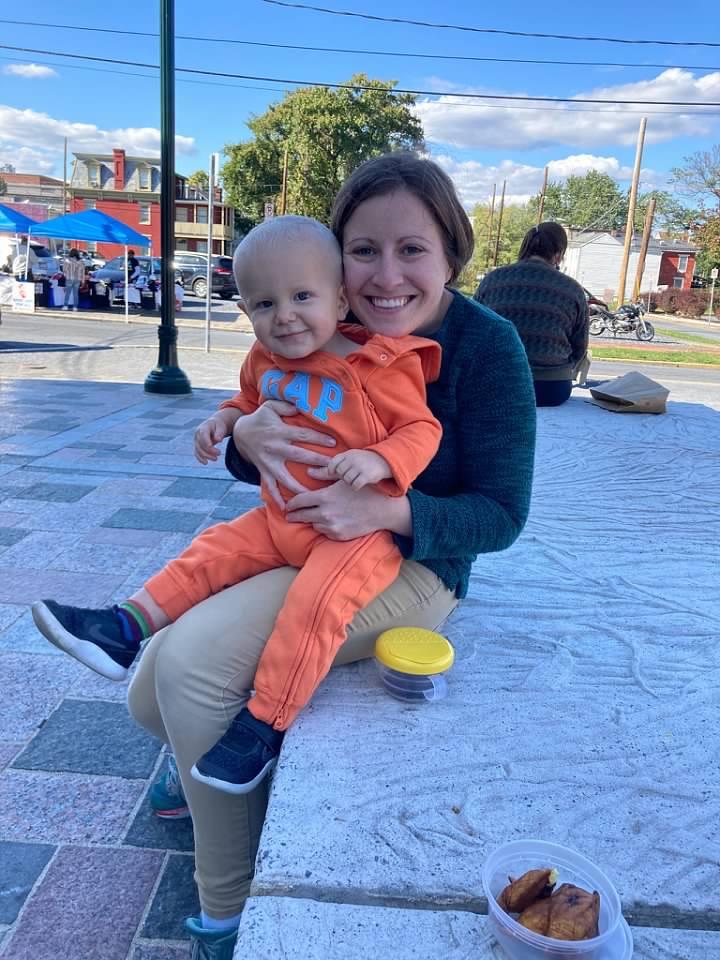

“I was able to take three weeks off after her birth. We already feel like a family and I believe that transition from being the "three of us" to now being the "four of us" really took place for me during those three weeks.”
Pennsylvania
s an epidemiologist for the state of and as a state employee, was not able to eave she had saved for her maternity leave opted her youngest child. Instead, she had er vacation leave. As a family of 6 with a paid time off was not an option. In Gina’s
vacation leave when we adopted our baby. as had a baby knows that the first 6 weeks of ything but a vacation. During Jack’s first year ere frequent well visit appointments and for colds but I once again had to choose to aid leave or vacation leave for these visits had a lot of saved sick leave, because only a umber of your sick days each year can be children.”
Romelia is not only a mother of two, but is also a full-time student and classroom volunteer. Not having access to paid leave after the birth of her son, Andre, meant that she had to rush back to school to maintain her credits and stay on track for graduation. She is determined to finish her degree and make a difference for families like hers, but also feels that she shouldn’t have to choose between a career and bettering the lives of her own children. In Romelia’s words:
“After having my son, I was rushed back into going back to school or being kicked out of my program. The little time I did bond with him was not enough; even now I still don't know all his cues and what's going on when he's fussy. I sometimes feel like I don't know my baby.”
Mary Nelle was grateful for the paid leave that helped her and her husband get to know their baby. In Mary Nelle’s words:

"My husband and I were both lucky enough to have some form of paid leave. My husband was able to stay home for the first three weeks of Grace’s life which not only provided a critical bonding opportunity but also allowed him to help keep our family afloat as I struggled with postpartum depression."


Javona’s story emphasizes why it is so important for mothers to have paid time off to bond with their new babies. Without her job, she could not afford to meet her children’s physical needs — food, housing, and utilities. But she feels like she had to sacrifice her ability to meet their emotional and mental needs in the critical early months in order to do so. In Javona’s words:

“Bonding with my babies is super important. Being a single mom, I make a lot of sacrifices. My biggest sacrifice is time. I spend most of my day at work so I can financiallyprovideand I allow a family member/child careprovider to give my child the love and attention I can’t offerat the moment. I feel guilty leaving my little ones for 8-10hrsa day 5-6 days a week. Being able to bond with my children means so much to me, I’m their mother and I enjoy being the one to meet their emotional and mental needs each day.”

After needing to return to work quickly after the births of their first two children, RaShona and her husband note the value of paid leave in terms of bonding and breastfeeding. In RaShona’s words:

“Zoë is the first newborn that we have had significant time to bond with, mainly because I (mom) am not working at all and dad was given paid family leave through his job as health and physical education instructor at a charter school. It has made a world of difference in her happiness and overall well-being. I was not able to successfully breastfeed for very long with my other children due to the stress of returning to work just a few weeks postpartum. I am elated that Zoë continues to breastfeed strong! Each drop of milk I can provide her contributes to her physical and emotional health.”

Across the U.S., families are learning to care
For babies whose health has given them scares. As they take in and adapt to what they are learning, It is such a challenge when they can’t be earning.
Did you know?
It takes several months of focused attention to become a responsive caregiver to a young child, establishing a pattern that will influence the child's long-term cognitive, social, and emotional development.
Jessica and Samuel’s baby Rafe was born with profound disabilities. In Jessica’s words:
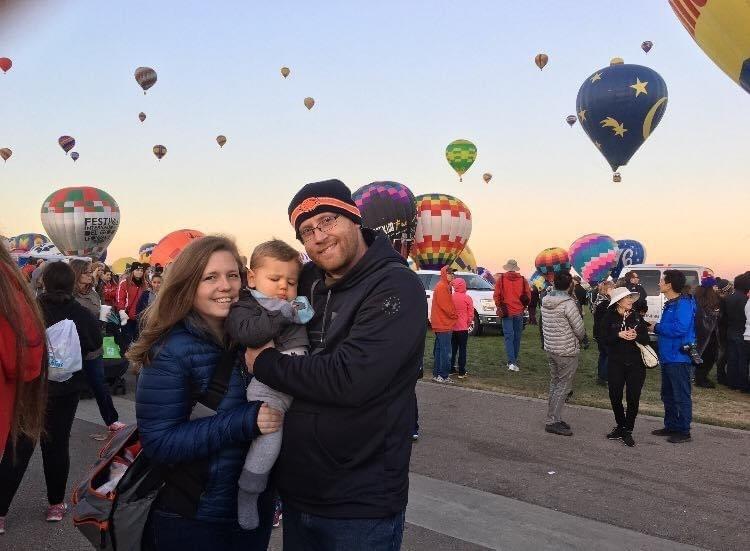
“My husband is an Army combat veteran working as a teacher. In 2018, Rafe’s stomach became paralyzed. He developed major feeding difficulties, epilepsy and chronic pain that required frequent hospitalizations. When Rafe needed care 2,000 miles from home, Samuel burned through the very limited sick and personal leave he had accrued in his short time teaching. He filed for unpaid Family and Medical Leave to guarantee that he could return to his job. We filed for mortgage assistance so we could pay our bills while Rafe was hospitalized.”

Anna’s son, Gareth, had severe allergies and asthma that led to multiple hospitalizations in his first year of life. Had Anna had access to comprehensive paid family and medical leave, she would have been able to spend more time bonding with Gareth and understanding what was causing his illness. Instead she had to walk away from a job she loved to care for her sick child. In Anna’s words:

“I had to return to work after 6 weeks due to the exhausting of my entire leave [due to a difficult pregnancy.] None of the leave was paid, but my job was on the line if I didn’t return to work. If there were more time for me to bond with my baby, I would have had more knowledge of what was going on with [his severe allergies and asthma]. I would not have had to resign from my job if there was more time allowed to be home with him.”

Hannah lost her job just 6 weeks before her son, Grayson, was born with a critical heart defect andneeding open heart surgery. Her family went through all their savings trying to stay afloat during this difficult time. Having access to paid leave would have provided them much-needed stability during a traumatic experience. In Hannah’s words:

“When Grayson was born and needed open heart surgery, we were stunned and terrified. Everything happened so quickly and I was having a hard time processing it all — trying to stay strong, trying to be there for both my new baby and toddler at home, worried about how we would pay the medical bills, worried about how much time I would have to stay home and take care of him, worried about keeping track of his medicines and appointments, worried about how this would impact his future and our lives. Paid leave would have made a tremendous difference during this traumatic time in our lives. How? It would have helped us sleep at night. It would have helped us get through the day. It would have allowed us to not make decisions based on fear and finances. It would have enabled us to be present and care for each other fully during the most difficult time of our lives ”

To pay their own rent and fill up their pantry. But child care prices can make that impossible Closing the gap between what they earn and must pay is improbable.
Teresa S.
Garden City, Kansas
Teresa’s story highlights how many of America’s working families are challenged to do essential work, earn for their families, and find and afford child care. In Teresa’s words:
“Before COVID, I worked a minimum-wage job, 40 hours a week, at our local grocery store. After each of my daughters was born, I had to quit work, as we could not afford child care. We faced many difficulties living on one paycheck.”

Did you know?

In 30 states and Washington, D.C., centerbased child care for infants and toddlers is more expensive than in-state tuition and fees at a public university.
When Allison and Alex, both educators, were pursuing their graduate degrees, neither had access to paid leave and had to return to work almost immediately after their son, Sage, was born. They could not afford child care so did their best to balance work, school, being new parents, and caring for their son. In Allison’s own words:
“I had to write my dissertation while caring for my son full time. I did not have any maternity leave and had to return to work a couple of weeks after giving birth. If you’ve never experienced the frustration of having to choose between keeping your job, paying for child care, or putting food on the table, try to remember the thousands of families that are in that situation.”

Sierra wants to work to support her two young sons, but finds that without child care support, her income would not be enough to cover expenses.
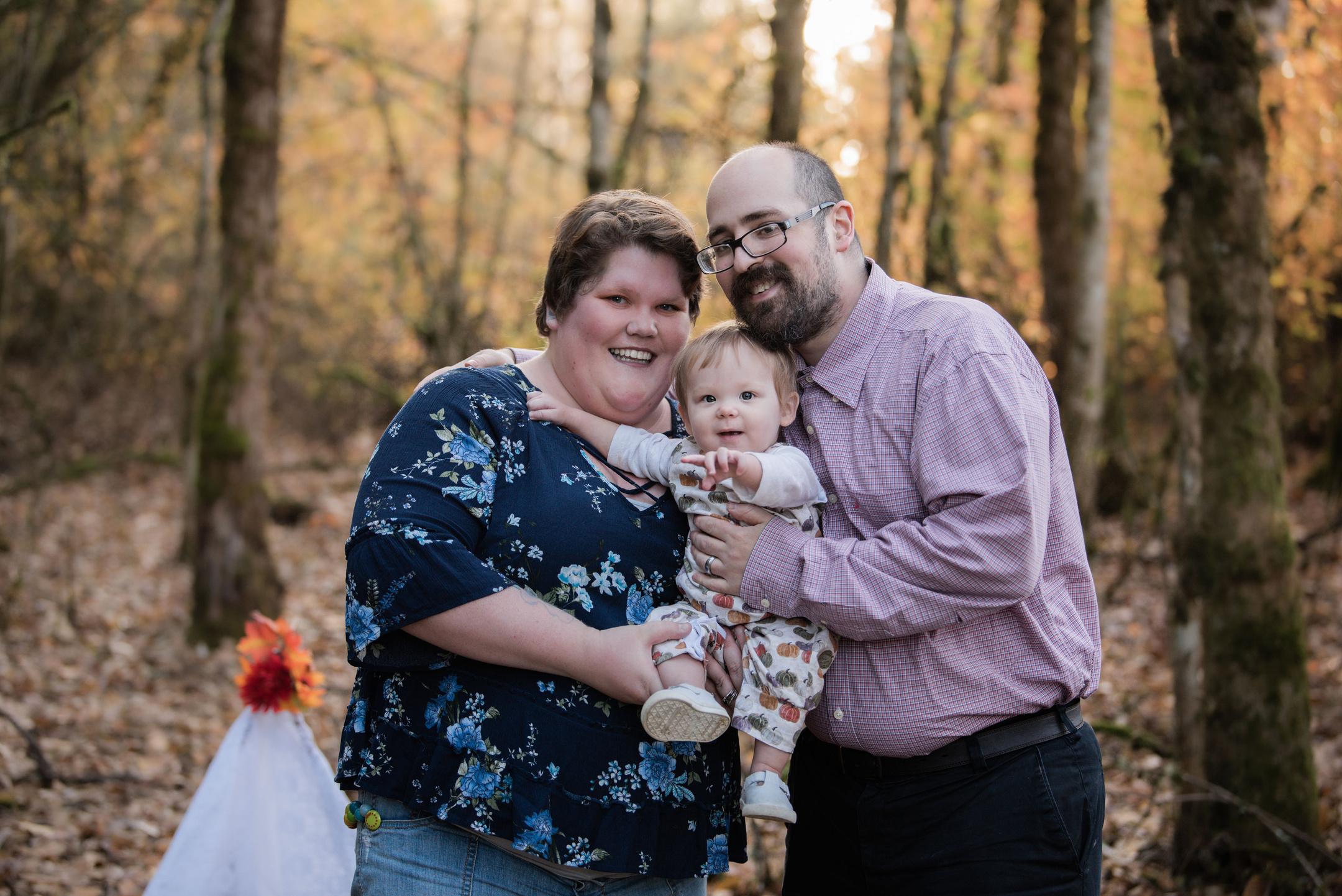
“One adult working in a household trying to support my two young sons is just not enough money for a basic quality of life. If I could work, I could help my family to live better and afford more of what we need, but I was never able to find child care that I would be able to afford without it costing pretty much all of the money I would make.”
Tess and her husbandare frustrated that they can’t seem to get ahead. She wants to work, but when they do the math, they determine thatthe financesdo not make sense for their family.In Tess’s words:
“Even before COVID, my husband worked 50 hours a week, and it was still hard for us to get by. With a second income, we would still be in the same situation due to the cost of child care and the fact that my husband‘makes too much money’for any services to help us out.”
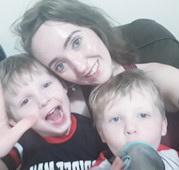

Mary Cameronstopped working full time shortly after her first daughter was born after finding out how expensive quality childcare is. In Mary Cameron’s words:

“I stopped working after our first daughter was born. I would have been paying more than 50% of my income onchild careexpenses for my infant. Now that we have two children it would be more than our mortgage payment each month. Every family I know is in the same boat.”
Fernanda and her husband were a middle-class family with two working parents, but child care costs were so outrageous that eventually Fernanda stopped working because her paycheck did not cover child care. In Fernanda’s words:

“That is a difficult spot — we need two incomes to get by, and it brings so muchanxiety.Affordable, high-quality early care and education would meanmy family would not have to struggle to pay the mortgage. This would mean I could go back to the workforce without worrying if my children are being taking care of or cutting costs to afford their child care. It would also give me the peace of mind that my children have the best start possible in life.”

Britney and Adam are working hard to build financial stability for their family, but find themselves continually thwarted by lack of quality, affordable child care for their young children. Initially, facing full-time child care costs greater than her income, Britney was forced to cut her hours to work part-time. But when Adam started his own small business, and their children no longer needed more costly infant care, Britney returned to work full-time, calculating that the slim margin of profit was necessary for their family. In Britney’s words:

“For so many of the ‘working poor,” we actually pay more for child care than we make, leaving no money left over for bills, food, shelter… Taking unpaid leave with my first two children was a huge financial burden and made our early days incredibly stressful. We have had government aid for insurance in the past, and it was a fantastic help, but our income was too high to qualify for other benefits that would’ve been such a help to our family. We usually hover in the financial bracket just above qualifying for services, but not enough to provide basic necessities for our children. With child care costs and inadequate family leave policies, we constantly feel behind financially, especially with two children who still need child care.”

Masha S. wanted to be a mom so much, but she finds it hard to parent on her own without any financial support. Child care is a particular issue. In Masha’s words:
“I work to support us and my daughter goes to a lovely inhome daycare and she squeals in joy when she sees her daycare provider. But the daycare costs more than my mortgage and that’s causing a lot of financial stress for me. I try to buy everything I need for her used and then resell it when we’re done (except diapers, of course) but that only helps so much. If my child care was affordable, I could save for my daughter’s college education, save for my retirement, and maybe occasionally buy her clothes that no one else has worn before.”

Jacquelyn has two sons: a toddler and an elementary school student. Her toddler was born 5 weeks early and has special health care needs. Safe, high-quality, affordable child care could make a tremendous difference for her family. In Jacquelyn’s words:
"Child care is one of the ongoing issues. Child care is very expensive, it takes a lot of my money. I have to struggle to pay the providers at time or send my sons to a more affordable daycare in not the best areas. Child care should be free or much more affordable."
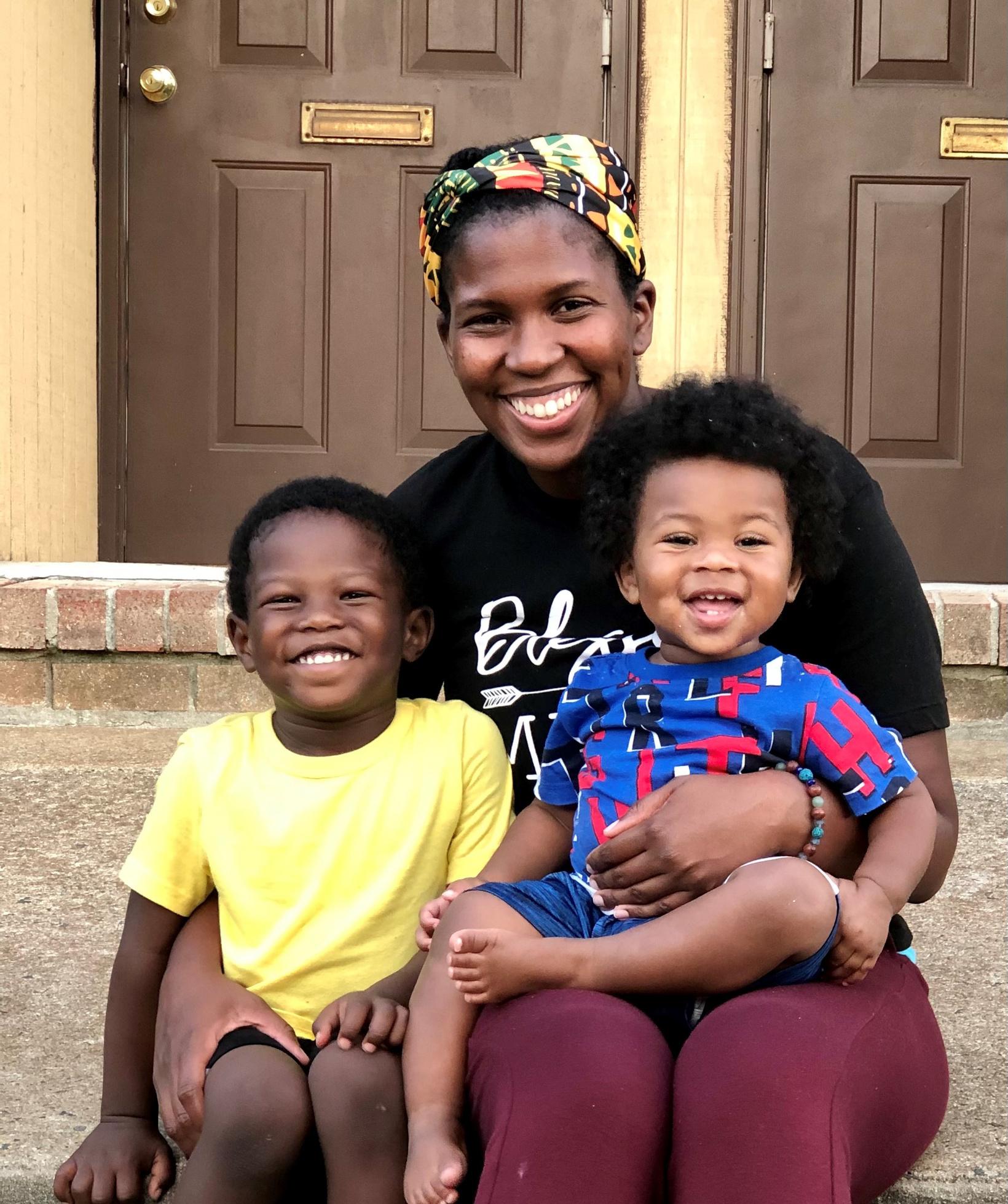
Across the U S , there are child care providers
Who are having kids of their own as child care insiders. But they don’t earn enough to afford the same care That they offer to others – does that seem fair?
Did you know?
The mean wage for child care providers is $12.88. That means staff turnover is high, which is difficult for babies who need stable relationships with primary caregivers in their early years
Brooke C. Albuquerque, New Mexico
Brooke trained as a preschool teacher and loved the work. But after having her baby, she quit because she and her husband, a police officer, could not afford the care their son needed. In Brooke’s words:
“I worked for years in a child care center - an amazing, beautiful, clean, exceptional child care center where I could never afford to take my child now. With the high cost of quality care, I was forced to settle for other programs, which was unimaginably painful because of the impact it had on my innocent child.I currently take odd jobs, cleaning homes and babysitting, so I can stay home with my child.”
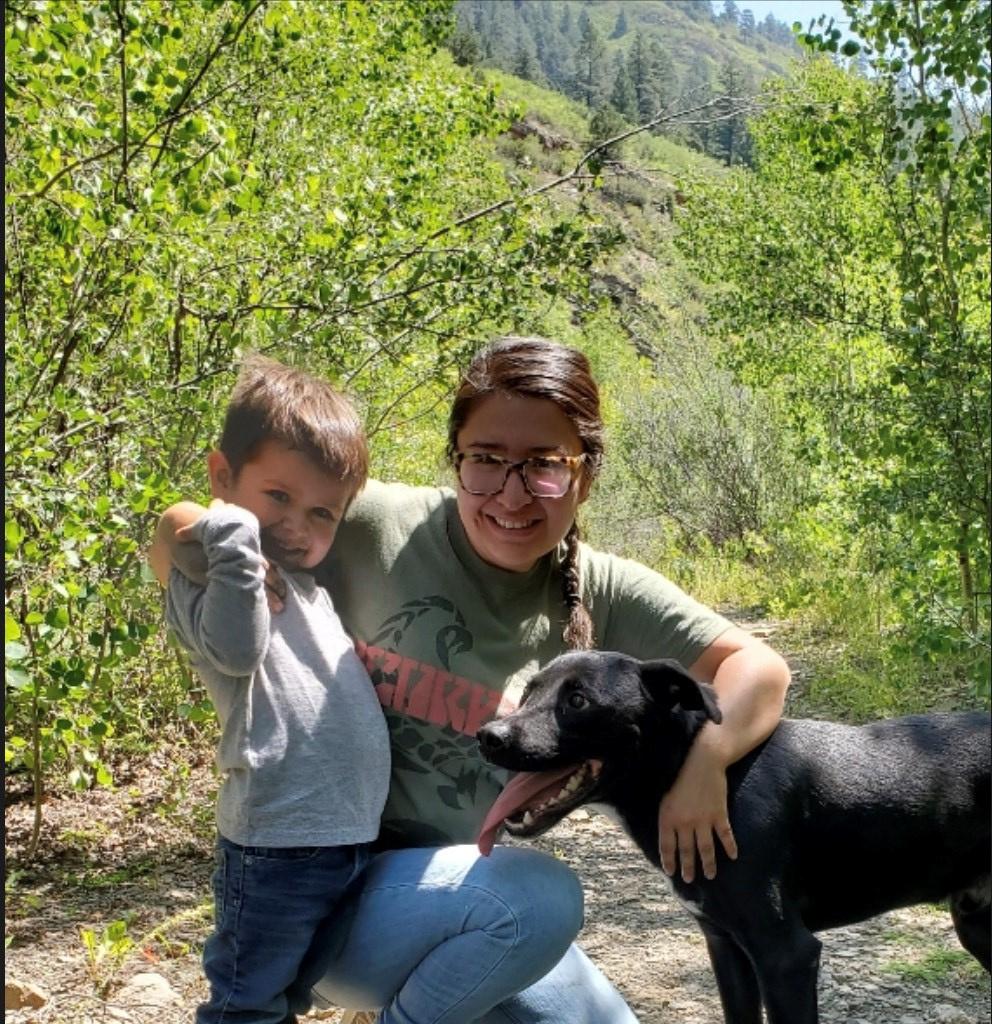
When Carry wa pregnant with baby, she was from job as a p teacher due to pandemic.Wh wants to go ba she is challeng the care she n her daughter. words:
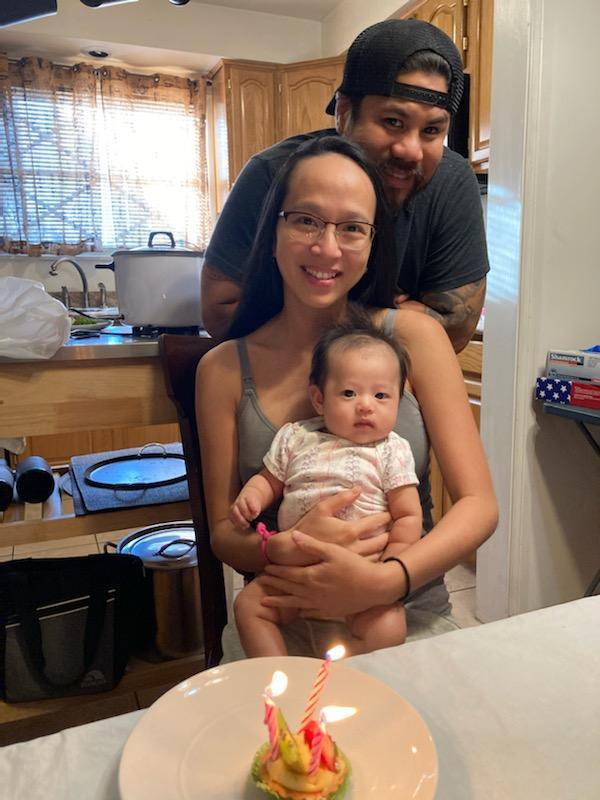
“I love what Ido to be back in th [preschool] clas ASAP. But wher enroll Ava? Wha development if lack training an demotivated by and lack of reco their pivotal rol much of my tea will have to go fees and other Do I have to co another profess though I know t my passion?”

As babies’ brains turbo-develop and build, Child care has to be quality-filled!
With high-quality care there’s such a hu And all babies get a positive early learnin
It’s true for all babies, and is especially tr When babies need the special care that
Ealasha V. Denver, Colorado Ealasha Vaughner Denver, CO“I wish Members of Congress knew the importance of early childhood development and how the emotional, physical and social development of children 0 to 3 has a direct effect on their overall growth. I also wish Members of Congress knew that even though families like mine have good paying jobs does not necessarily mean they have enough funds to pay for everything they NEED. I don’t qualify for any type assistance, but my bills are more than my earned income because I do not have any other help to take care of my daughters.”

Colleen and her husband consider themselves lucky. They have stable careers, access to high-quality, rated child care, physical and mental health care and a great support network. But they know that is not the case for everyone. In Colleen’s words:

“Knowing that both my husband and I would need to return to work shortly after the birth of our daughter, choosing a child care provider became the most important decision we had to make. Through New Jersey’s Quality Rating and Improvement System, we were able to identify a program where she was in good hands, where we knew the provider was following exceptional health and safety practices, implementing an evidence-based curriculum and that teachers were receiving ongoing professional development. It made one of the most difficult decisions we have made so far almost effortless. I go to work confident every day that my child is thriving in her environment. But the provider is 20 minutes from our home, 40 minute round trip commute. There are a lot of child care options closer to us, but they fail to meet the most basic licensing requirements and have not committed to continuous quality improvement (yet). So we wake up earlier and we drive so that her safety, nurturing and developmental needs are met. I’m grateful that we have this option and the flexibility to do so.
"Quality means everything to us as a family and we truly believe that investment in quality initiatives is critical to the field of early education. Affordability must be addressed for both low and middle income families and investments must be made at the state and federal level to ensure quality programs can continue to operate, compensate, and continue to improve.”
Did you know?

Quality child care feeds a baby’s growing brain, building the foundation for the development and learning necessary for them to thrive as adults, but quality infanttoddler care is largely unavailable and unaffordable.
As a result of early abuse, Capri’s son, Jamarion, has multiple disabilities. Capri cannot return to work without skilled care for her son, which jeopardizes their financial security. In Capri’s words:
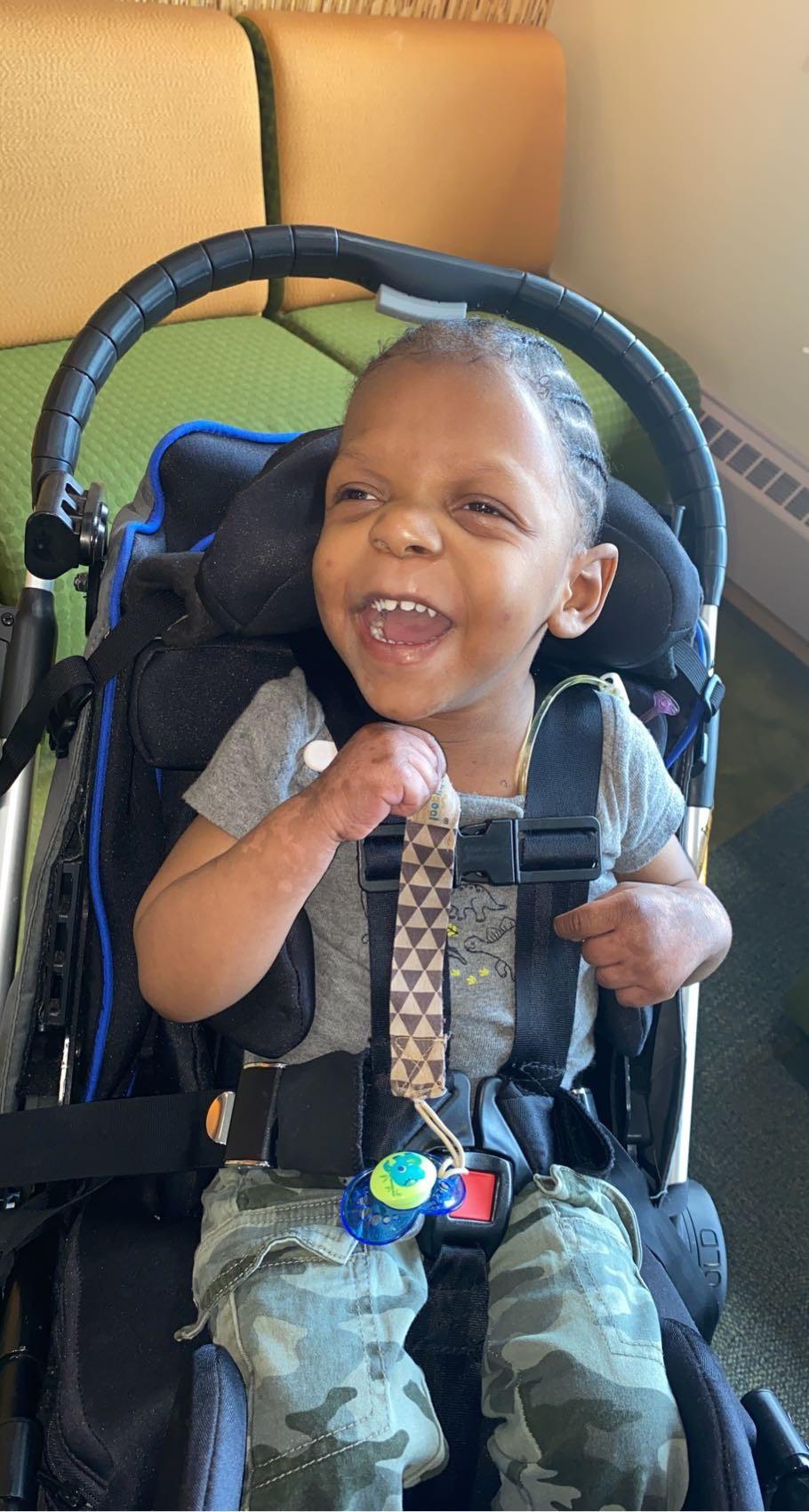


“If I had high-quality, affordable child care, I could go to work or school to be able to help other people in my situation.”
“Having worked in most of the centers in our region as an early intervention provider I struggle with the idea of leaving my daughter as the staff are frequently under-trained, under paid and over worked. Educating these teachers is key but their pay doesn’t support the cost of higher education.”
Soon after Charmayne’s daughter’s birth, Taylor contracted a virus that left her with significant disabilities and medical needs. Charmayne, who owned a salon before Taylor was born, and her husband, an owner in their family farm, do not expect that Charmayne can return to work. In Charmayne’s words:
“We have a daughter with complex disabilities and medical needs. Even before the pandemic, we could not find the child care for Taylor that she needs. There isn’t a child care center


All families want the best for their babies, No ifs, ands, or buts. No perhaps and no maybes. But wow – it costs lots to provide these core opportunities. We need public investment in babies and their communities. The Child Tax Credit has helped families lots As they pay for the things that they need for their tots.
Stephanie C. Roxbury, MassachusettsStephanie is a public school kindergarten teacher and community advocate who is working hard to care for her baby while she does essential work in her community. In Stephanie’s words:
“I recently graduated from a Post Masters Course where my2 year oldhad to come with me to every session and stayed home with me while we were learning remotely. During the pandemic, he was also home with me or my mother two days a week while I was teaching because it was more affordable than sending him to his daycare 5 days a week. I do not qualify for programs that can be helpful, so during the time that I was teaching and going to school, I paid to meet all of my family’s needs on my own, which has been a struggle on a teacher’s salary. It is too high to qualify for any discounts or benefits like vouchers, but too low to really make ends meet. The cost of child care takes up about 35% of my income. I also pay rent, car insurance and loan payments, my phone bill, utilities, groceries. I also have student loans.”

Withoutkeysupportsth atprovideworking familiesstability,many families likeShiela’shave beenforced to make impossible decisionsthat threaten their economic security. In her words:

“Because of our nation’s lack of paid leave and affordable child care, when our daughter’s child care closed indefinitely in the pandemic, my husband and I had to make a decision. He stayed home with Ava, and we lived on one income with which we still had to pay the same amount of expenses including the child care fees we were bound to pay by contract.”

Did you know?
40.3% of babies and toddlers live in families in poverty or with low income.
Monique is a chef and a mom with significant health concerns. Her daughter, Estrella, is “strong, super sassy, and so smart.” Estrella was born with mild cerebral palsy and is in the process of autism testing. In Monique’s words:

“As a result of constant stress in my body due to long term economic insecurity, childhood trauma, and difficulties affording healthy food, I have significant health issues. My young daughter, who is strong, sassy and smart, was born with mild cerebral palsy and is in the process of autism testing. I want to be clear that my family’s struggle to find economic security is not a result of laziness. Between us, my daughter and I have 25 doctor appointments every month, making it impossible for me to work. I also care for my parents, both with chronic conditions. It is challenging for my partner to work because there are days that I can’t physically care for our daughter, and we need his help. We try to utilize resources, but we are sometimes denied due to complications.”

So Congress, listen as your constituents bid For the things babies NEED, those dear, precious kids. Our future is riding on your action and whether You Think Babies and Act and make families' lives better.

A baby’s environment can impact their development, as early as in utero. Environments are both physical and social, experienced in interactions with adults. Parents face many stressors during pregnancy and after their baby's birth. Poverty, joblessness, housing and food instability, as well as lack of access to health care create a challenging environment for both the parent and their developing child.
Paid Leave reduces stress for families as it provides time for them to focus on their children without worrying about missing a paycheck.
The Child Care environment - both physical and interactional - is a key environment for growing babies! Quality Child Care puts in place the supports babies need in that environment.
A refundable, extended Child Tax Credit paid on a monthly basis is already shown to lift families out of poverty.
Babies are built for bonding. Early on, babies can recognize their parents by the sound of their voice and their smell. Babies’ vision is accurate from the distance of their face to their parents’ face when they’re being fed. From their first moments, they learn from give and take interactions with adults as they get to know each other.
Paid Leave offers babies and families time to form these vital attachments. Quality Child Care provides young children with access to nurturing, tuned-in providers with whom they can build relationships, and maintains those relationships by offering providers a living wage and ongoing support.
The big developmental task of early childhood is learning that an adult will meet your needs. This sense of security affects a person’s ability to form future relationships and is also foundational to early learning. Newborns need to be fed every 2 or 3 hours, which makes juggling work and child care a real hardship in the first few months of life. Furthermore, when families are stressed or depressed or when babies’ needs are not met, it can impact a baby’s sense of security and long-term development.
Paid Leave gives families unstressed time to focus on learning and meeting their babies’ needs. Also, when babies have serious health needs, having their parents present can improve their recovery. This time together can also help parents learn how to best care for their sick children.

Quality Child Care considers the changing needs of babies and adapts to nurture their emerging emotional and cognitive development during the hours babies are in their care.
The Child Tax Credit helps families meet their babies’ tangible needs.
Each baby is unique. Babies are born with different temperaments, routines, preferences and sensitivities. That means that learning to care for them and help them feel safe and secure is individual for each baby.
Paid Leave helps families really get to know their unique babies and develop a strong shared relationship.
Quality Child Care attends to the individual and developmental differences in babies and toddlers, adapting care to meet each baby’s needs and provide them with the best possible care.
The Child Tax Credit can help families whose babies need unique or more specialized supports.
Babies’ brains are growing faster than they ever will again, forming 1 million neuronal connections every second. And what they learn when their brains are young is foundational to everything they learn later.
Paid Leave makes the most of this time, helping babies and their families develop the early relationships at the root of learning.
Quality Child Care attends to the developing brains of children and their complex learning, offering skilled care and positive early learning experiences as they grow. The Child Tax Credit combats the deep threat of poverty on early development and helps families in offering babies what they need to support their ever-evolving learning and development.
The Think Babies Storybook was developed by ZERO TO THREE’s Think Babies™ . ZERO TO THREE created Think Babies to make the potential of every baby a national priority. When we Think Babies and invest in infants, toddlers, and their families, we ensure a strong future for us all. Learn more at thinkbabies.org.




ZERO TO THREE works to ensure all infants and toddlers benefit from the family and community connections critical to their well-being and development. Since 1977, the organization has advanced the proven power of nurturing relationships by transforming the science of early childhood into helpful resources, practical tools, and responsive policies for millions of parents, professionals, and policymakers.

zerotothree.org | /zerotothree | @zerotothree

